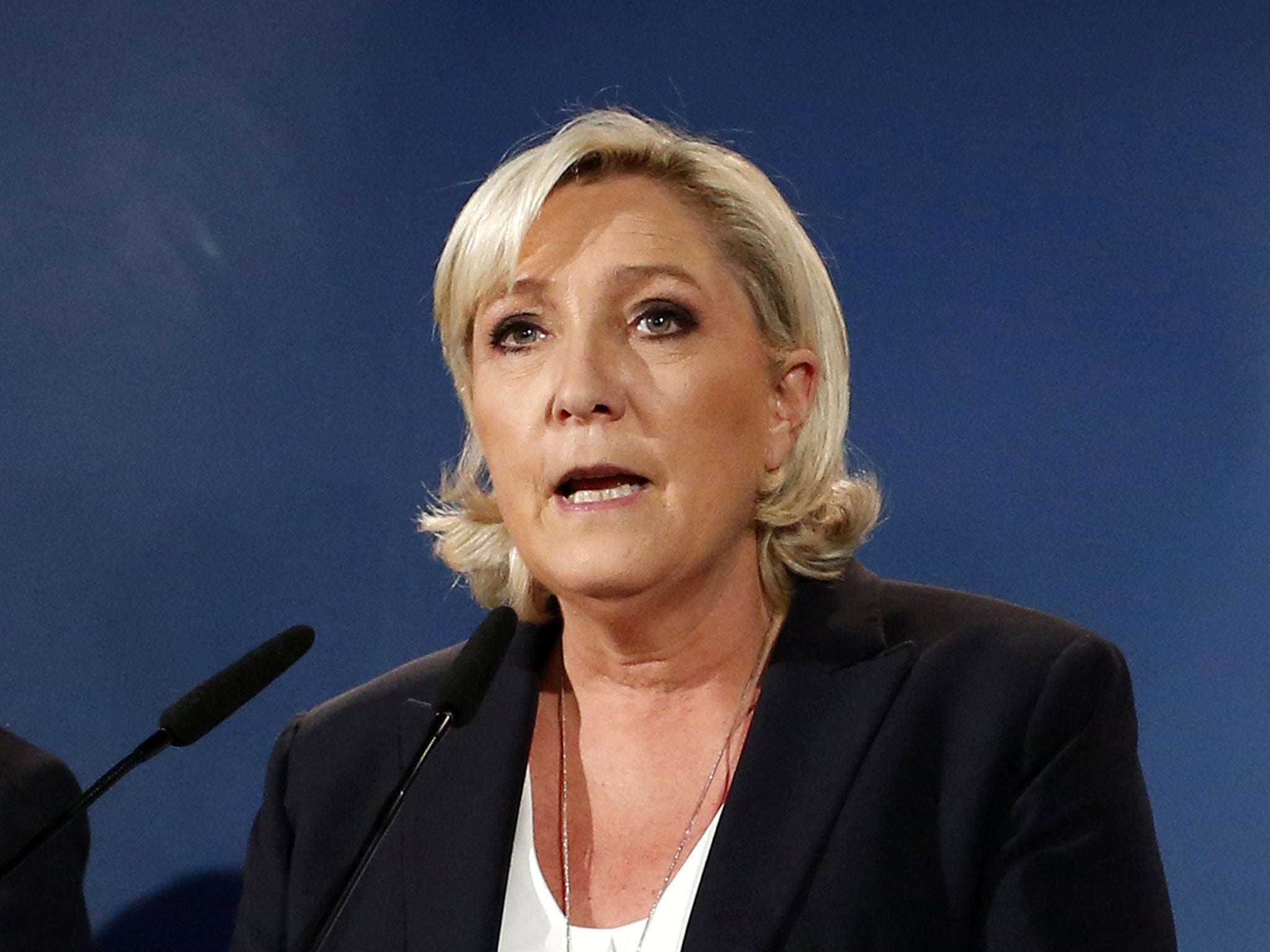French parliamentary elections: Emmanuel Macron's party expected to triumph as Front National faces collapse
French citizens will go to the polls on Sunday to elect their new Parliament

Your support helps us to tell the story
From reproductive rights to climate change to Big Tech, The Independent is on the ground when the story is developing. Whether it's investigating the financials of Elon Musk's pro-Trump PAC or producing our latest documentary, 'The A Word', which shines a light on the American women fighting for reproductive rights, we know how important it is to parse out the facts from the messaging.
At such a critical moment in US history, we need reporters on the ground. Your donation allows us to keep sending journalists to speak to both sides of the story.
The Independent is trusted by Americans across the entire political spectrum. And unlike many other quality news outlets, we choose not to lock Americans out of our reporting and analysis with paywalls. We believe quality journalism should be available to everyone, paid for by those who can afford it.
Your support makes all the difference.French citizens are expected to deal another blow to the far-right Front National (FN) as they go to the polls to elect the country's Parliament.
Marine Le Pen's party which achieved its highest score with 10.6 million voters in the second round of the presidential election, has been weakened by her defeat and an internal crisis.
The FN won only 13 per cent of the vote in the first round of the legislative elections last Sunday, a score far from the 33 per cent of the second round of the presidential election. The reason for this weakness might well be its leader.
On the evening of the decisive vote of the presidential election, in the National Front’s headquarters, leaders swept away the defeat and emphasised “the historic score of the FN”. All said the goal was legislative elections and that FN intended for the first time in its history, to get a parliamentary group – 15 deputies – in the assembly.
Nicolas Bay, director of FN campaign for the legislature but beaten the first round in Seine-Maritime, declared: “On 7 May, Marine Le Pen crossed the bar of 50 per cent of votes in 45 constituencies. In nearly 70 others, we got between 45 per cent and 50 per cent. Here again, the prospects of victory exist...these scores suggest a massive influx of patriotic MPs in June.”
But according to the latest poll on Saturday evening, if 110 FN candidates who made it to the second round, only one to five MPs could sit in the National Assembly.
Ms Le Pen, who came out on top in the first round with more than 45 per cent of votes in her stronghold in Hénin-Beaumont, is the only one in her party whose victory in the second round is almost assured. Yet she is also seen as responsible for the disappointing results of her party last Sunday.
The “absolute failure of the television debate” between the two rounds of presidential election still leaves traces.
Stéphane Wahnich, a political analyst who has written two books about the FN leader, explains: “A deep unease has settled since the debate, it showed a terrible lack of credibility.” This “questioning of the leader” was translated in the ballot boxes by a record abstention.
An Ipsos survey indicates that 57 per cent of Ms Le Pen’s voters in the first round of the presidential election have abstained in the first round of legislative elections, well above the average.
It is “the first time that the FN voters are among the abstentionists, whereas normally it is the most mobilised electorate,” says Mr Wahnich.
This weekend, abstention should, according to the latest estimates, reach an absolute record 53 per cent.
“A myth has collapsed, there is a total discrediting of Marine Le Pen," Mr Wahnich added, which adds to another problem - “the absence of alternative leader, [which] challenges the meaning Of the FN vote”.
The withdrawal of Ms Le Pen's niece Marion Maréchal Le Pen from political life in May also created a void within the party.
“Logic would have her take over the party,” says Jean-Yves Camus, analyst and president of the observatory of radicalism at the Jean Jaurès foundation. “There is no doubt she is not yet out of the game. She has a political line, a popularity and time in front of her.”
However, this crisis is only “temporary” according to Mr Wahnicht. The FN could well benefit from the “legislative void that will create this election”, the Macron wave carrying away any opposition on its passage.
Ms Le Pen, who is likely to find herself as the only National Front in parliament, may well benefit from her isolation.
"She would be the survivor, a favourable position that would relegitimise her in front of the militants,” explains Mr Wahnicht.
Meanwhile, Emmanuel Macron's centrist En Marche! party is provoking a real “revolution” of the political landscape. It could win a landslide with 430 to 460 seats out of 577, according to the latest Odoxa poll.
Join our commenting forum
Join thought-provoking conversations, follow other Independent readers and see their replies
Comments